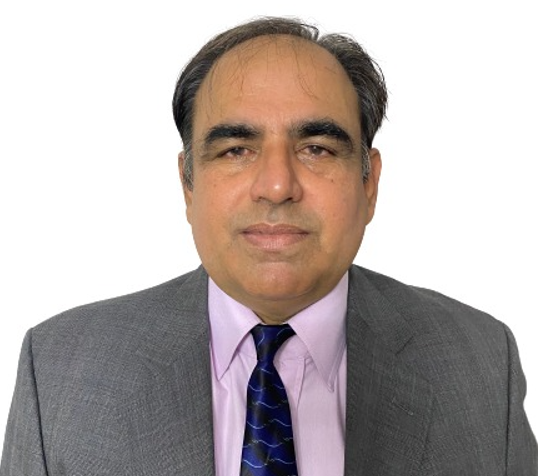– Dr. Rahul Kumar, Diplomacy & Security Expert-
(Asian Independent)- The veteran human rights activist, Serei Kovaley argued that’ it was not accidental that KGB Lieutenant- Colonel Putin become president of Russia’ In his address to the state of the nation on 16 May 2003, Putin said, “Russia will be a strong country with modern, well equipped and mobile armed forces, with an army ready to defend Russia and its allies and the national interests of the country and of its citizens.”[i] This is what Russian President Putin is trying to achieve by unleashing a war on Ukraine.
Biggest problem for Russia is the distance between Oil and Gas wells to consumers in EU countries, averaging about 8000 km from wells in Russia to 12, 000km in Turkmenistan. This involves scores of countries including Ukraine, hundreds of operators, booster stations, metering etcetera. On the other hand, the leaders of the European Union are well aware of the necessity of Gas and Oil from Russia to meet their household, commercial demands. The consumers as well leaders of the European Union also understand that selling Oil and Gas to Europe is 100 times more complex. In security affairs membership of NATO had become the open aspirations of countries like Ukraine which is an affront to Putin.
On 24 Feb 2022, Russian President Vladimir Putin unleashed a war on Ukraine on purpose. The war is still on, killing thousands of military personnels on both sides. It was long due to settling scores with a puppet Government under Ukraine President Volodymyr Oleksandrovych Zelenskyy. The United Secretary –General Antonio Guterres insists that Putin adventurism “ must stop now”. [ii]
Every leader of the United States of America including President Joe Biden and the European Union is threatening Russian President Vladimir Putin with economic sanctions. It is also a fact that President Putin is not as weak as to be afraid of economic sanctions. The US establishment has tried these tactics of economic sanctions on Iran and North Korea but failed to achieve its desired objectives.
Indian diplomats must go back to the days of the Indo-Pak war of 1971. The role of US administration and diplomats under various US Presidents during Indo-Pak war of 1971 is obnoxious On 4 December, Ambassador George Bush, accused India of being responsible for the war and introduced a seven-point draft resolution (S/10416) in the United Nations Security Council (UNSC). India expressed its disappointment, shock and surprise.[iii] The US dispatched the warship 7th Fleet to support a military dictatorship, President Yahya Khan, and to threaten a democratic country, India.
President Richard Nixons ordered the US Navy’s 7th Fleet on 10 December to enter into the Bay of Bengal to threaten the Indian activities.[iv] The Nixon Administration approved the sale of 20 aircraft and 300 armored personnel carriers worth about $50 million to Pakistan under the ‘one-time exception’ to the US arms embargo. In a statement in the US Senate on 12 October 1970, Senator William Saxbe said that between 1954 and 1965 the US had given Pakistan military aid worth nearly US$ 2 billion by way of hundreds of tanks, about 700 artillery pieces, about 20 squadrons of F-86 Sabre jets and F-104 Starfighters and other equipment.[v]
India- Russia relations have been thriving since civilizations. Russia, an unwavering friend of India at the time of war with Pakistan in 1971 stood by India against Pakistan. India’s Foreign Minister Sardar Swaran Singh during his visit to Moscow in June 1971 to discuss and negotiate the Indo-Soviet Treaty of Peace, Friendship and Cooperation. The Treaty was signed on August 9, 1971 during Soviet Foreign Minister Andrei Gromyko’s visit to New Delhi. The Indo-Soviet Treaty of Peace, friendship and cooperation of 1971 become a robust counter to the menacing Washington- Beijing – Islamabad axis. The treaty was probably the most seminal foreign policy arrangement entered into by India in the 20th century.[vi] Under President Leonid Brezhnev, Russia dispatched a nuclear armed flotilla which had an array of destroyers, frigates, submarines from Vladivostok on 13 Dec 1971.
Russia stood by India when Indian Prime Minister Narendra Modi revoked Article 370 in Jammu & Kashmir(J&K). Russian Ambassador Nikolay Kudashev said, ‘ Kashmir is an internal issue for India, and those having doubts over New Delhi`s policy can visit the region. As far as the phenomenon of terror is concerned, we do share our concerns with India. There is a danger of terror…being spread to the Russian territory, to the territory of Kashmir maybe.[vii] Bilateral trade between India and Russia stood at $11.9 billion in 2021 and defense trade between India and Russia is over $15 billion.
Indian diplomats must learn lessons from the war of 1971. Simply abstaining from voting against Russia in the United Nations Security Council is not sufficient given the robust, warm relations between India and Russia. Now is the time to make out who stood by us and who stood against us. Now is the time to support Russia. Now is the time to send humanitarian aid to the people of Russia after the Russo- Ukraine war stops. Now is the time to oppose economic sanctions of US, EU countries against Russia. By doing so, India can win the heart and mind of Mr. Putin. Hopefully, Russia would side with India if China dares to attack.
Dr. Rahul Kumar, Ph.D. in Sociology from Jawaharlal Nehru University, Delhi(India), is an independent researcher. The views expressed in this article are personal.








